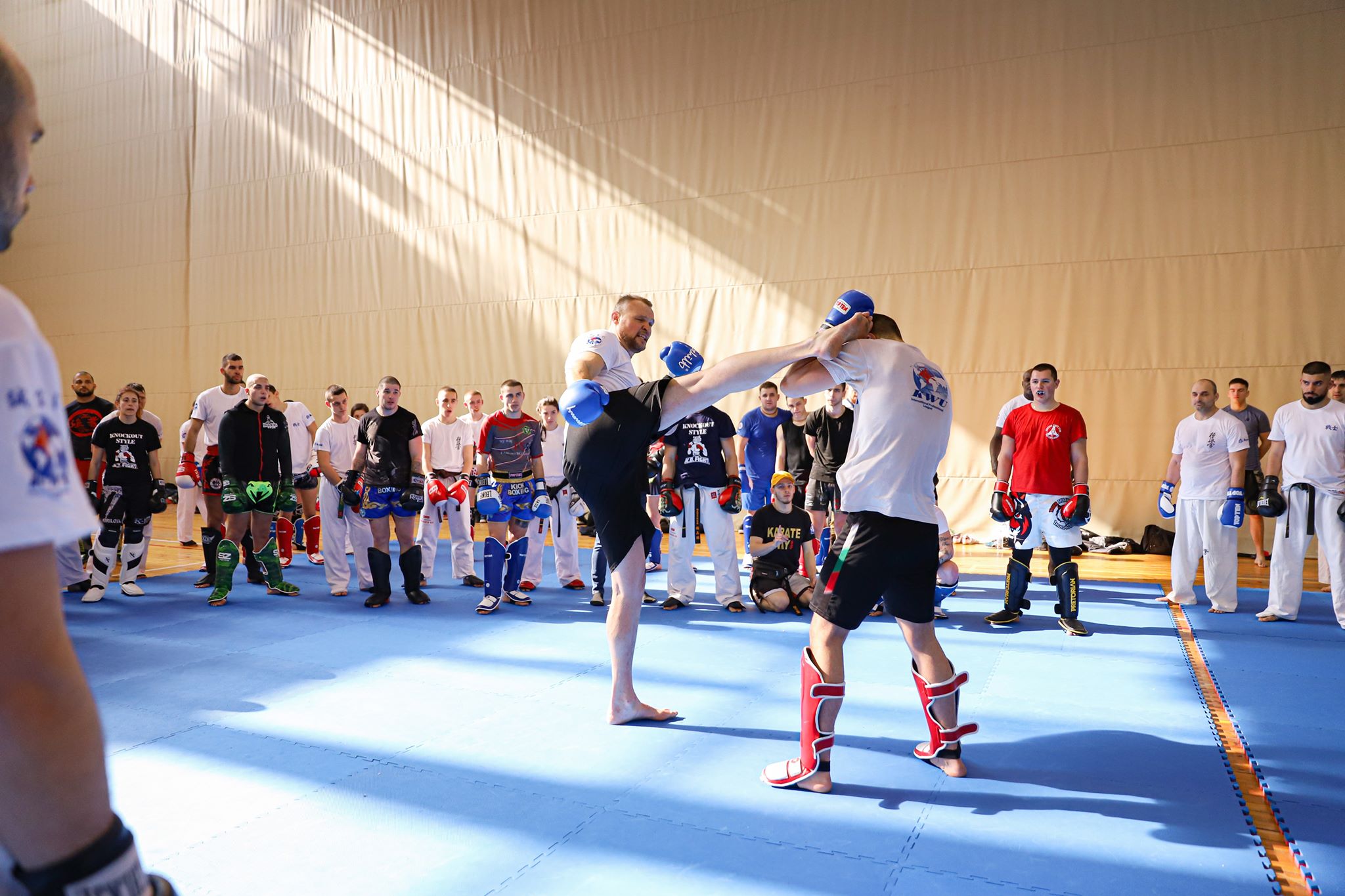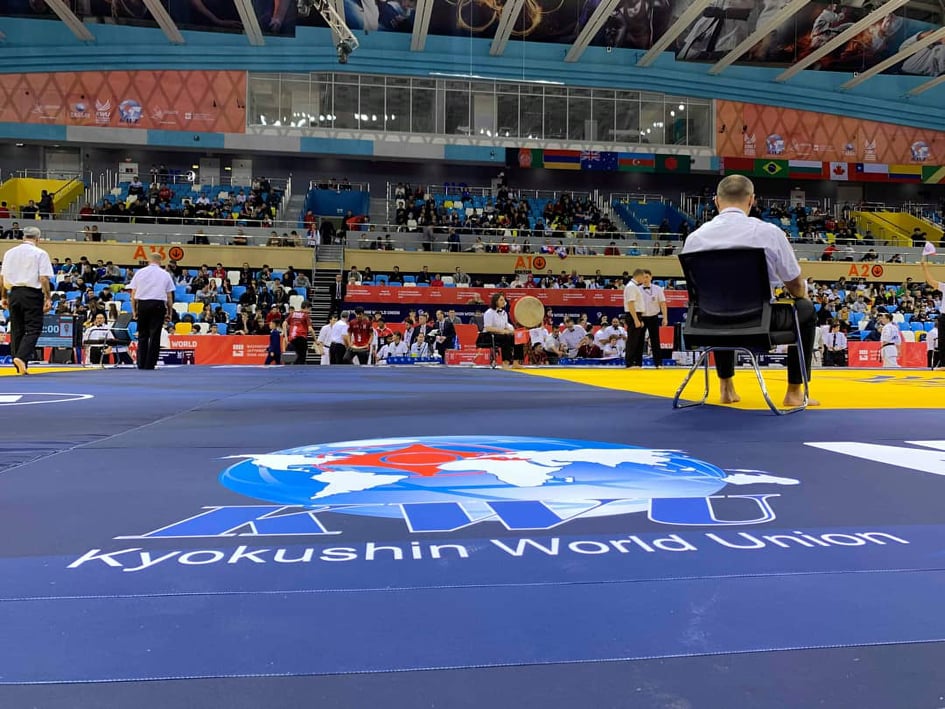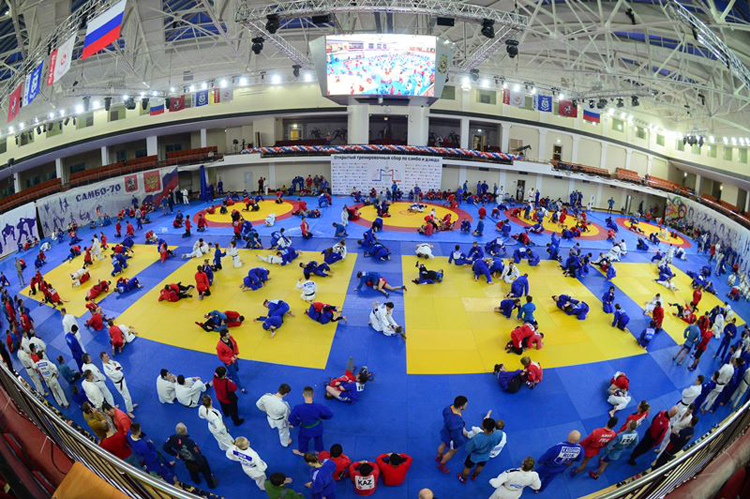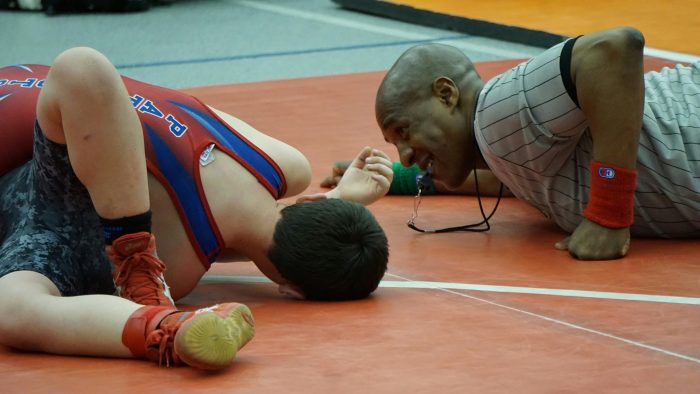One thing is for sure, whether you own a floor scrubber or not, cleaning your foam martial arts mats is about as necessary as necessary can get. Sweat, foot dirt, and the (hopefully) rare occurrences of blood are going to be especially problematic. Not only will this cause a build-up of unwanted bacteria and germs, but the mats can also begin to smell funky. Nobody wants to join a martial arts gym that is at high risk of causing illness! Likewise, how do you think member retention will hold up if your current members keep getting sick? What can you do to be sure your gym stays healthy and your business prosperous?

Prevention
Develop a simple set of rules for your gym or dojo to keep the dirt levels down:
-No Shoes
There’s really no telling where your members have been walking around all day. What they are stepping in, and ultimately dragging into your gym has no place on your mats. Dirt, mud, pebbles, gum, etc. is not something people want to be rolling around in, and it will only add to your cleaning time. Put into place a strict “no shoes on the mats” policy!
-Wash Your Feet
Just because you have a no-shoes policy doesn’t mean your members are all foot models! Sweaty, stinky feet can cause unwanted moisture and smells to build up in your mats. If possible, have people wash their feet before stepping on your mats. Many martial arts athletes wear special shoes that are lightweight, durable, and eliminate the problem of smelly bare feet digging into your mats.
-Clean up After Yourself
As a gym owner, it’s your job to clean, not your members. However, there’s no reason you can’t have a policy in place that any significant soiling of the mats by a member should end in them cleaning it up. At my old gym, we would always spot check for blood and disinfect equipment daily, no matter what. However, we had a policy that if a member bled on the equipment, they were responsible for cleaning it on the spot. No one ever had a problem with that, it’s reasonable. The same should apply if any significant mud or dirt makes it onto the mats.
Best Practices for the Cleanest Martial Arts Mats
Whether you’re training top karate athletes or putting kickboxing students through a circuit, you don’t need to own any fancy equipment or hire a cleaning service to build your reputation for having a clean martial arts gym. Put in the effort and follow these best practices for cleaning your foam puzzle mats and other surfaces.

1. Prep the Mats
Before you do any scrubbing or mopping, you need to prep the mats. Large dust, dirt, hair, etc. should be removed via sweeping with a broom, vacuuming, or both. Dirt, especially pebbles that may have been dragged in have the potential to damage the surface of your expensive mats. Get the most longevity from your mats by keeping them free of damaging debris!
2. Know the Difference Between Cleaning, Sanitizing, and Disinfecting
Want to eliminate germs, decrease the chance of spreading sickness, and boost member retention? Learn how to properly control the number of germs on your mats. First things first, pop over and read our short article to learn the difference between cleaning, disinfecting, and sanitizing.
3. Clean First
After you’ve swept or vacuumed the large dirt and hair from your mats, it’s time to clean. There are several ways to do this, but we’ll cover the most common. Some gym owners choose to wipe down the mats with warm water and soap either with a rag or a sponge, while others go the route of a mop and bucket. Two things to think about when choosing to clean your mats these ways:
- Detergent – The detergent you choose should be EPA approved, non-toxic, and skin-friendly. Mat Cleaner is a super concentrate, neutral pH detergent designed for use in a floor scrubber, however, it can be used with a mop or sponge. It is sold in pre-measured, 2 oz. packets that can be added to your water bucket. Go beyond that mat and use it on all floor surfaces in your facility, including conventional rubber gym flooring, as well as all types of hard floors including wood, tile, and concrete.
- Germs – Using a mop or a sponge to wipe down your mats may seem like a cheap way to clean, but it isn’t necessarily killing germs. What’s really happening is you are just pushing the germs around your mats. Dip the mop back in the water bucket, and you are just pushing contaminated water around. Furthermore, just because a mop and bucket are a cheap upfront cost, doesn’t mean it’s cost-effective. Mopping takes up to 10x longer than an auto-scrubber. Your labor costs will far outweigh the cost of a floor scrubber in the long run!
4. Kill Germs
Once you have cleaned your mats with a quality detergent, you’re going to want to disinfect your mats to eliminate the bacteria that’s causing your members to get sick. Wipe or spray down your mats with an EPA approved sanitizer, following the directions on the bottle to make sure you are using the proper dwell time. Dwell time is the amount of time the disinfectant must sit on the mats before wiping it off to ensure that germs are effectively killed.
5. Flood Damage
Keeping in mind that almost all mats such as puzzle mats, tile mats, etc. have seams that may not be sealed, it is important to monitor the amount of water you are using to clean. Don’t flood your mats! Using too much water can cause water to build up underneath your mats that can lead to mold growth, increased cleaning efforts, and possibly even require replacing the mats.
6. Schedule Your Cleaning
The absolute best way to be sure your gym, in particular, your mats, is staying clean is to create a cleaning schedule and stick to it. Not remembering the last time you cleaned or saving your cleaning for when you have “free time” is a great way to welcome unhealthy bacteria and illness into your gym. What if you told your athletes to train irregularly, without a plan, whenever they had free time? Would you have faith that they would develop the skills they are seeking? Would they be happy with their results? Probably not, so practice what you preach and plan ahead!

The Best Way to Clean Your Mats
Let’s face it, nobody opens a dojo or starts a martial arts gym for the unsexy stuff like cleaning. It’s all about the thrill of coaching, teaching, changing lives, etc. But the truth is, somebody must clean, and it’s going to take time. Hands down, investing in a floor scrubber is going to be the best, most time and cost-effective way to clean your rubber gym tiles.
Floor scrubbers are made to handle the toughest environments. The Bulldog WD20 walk-behind auto-scrubber is a compact, high-quality machine that can clean foam tile mats, rubber grappling mats, high-traffic boxes, and more. They are designed to put down a clean detergent solution, scrub, and squeegee your mats one pass. The squeegee system has a vacuum that will pull the dirty water up into a separate dirty water recovery tank, leaving your mats dry. This ensures your mats will never see the same water twice, virtually eliminating the chance for the contamination of bacteria we see when using a mop. Lastly, the vacuum system is powerful enough to pull water from the space between mat sections and keep mold from growing under your mats.
Financing options allow small business owners with high overhead to make payments each month that are often lower than what their gym memberships cost.
Keep in mind that not all mats are created equal.
While most boxes, commercial fitness centers, strength & conditioning weight rooms, and small fitness studios all have similar flooring – some form of firm rubber mats – many martial arts gyms pose a challenge. Because martial arts is a combat-oriented sport, a flooring surface with a little more “give” is required to ensure athletes, self-defense students, and health enthusiasts stay safe during practice. The Bulldog does not work on all mats, as some really soft mats may not take well to the weight of a scrubber. It’s important to make sure you speak with one of our specialists to determine whether or not your mats will support a machine.



